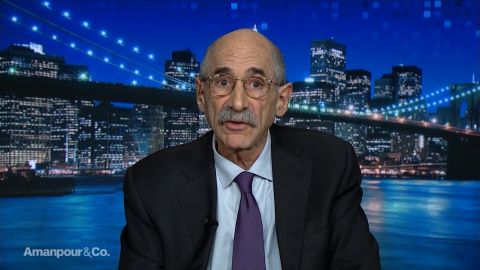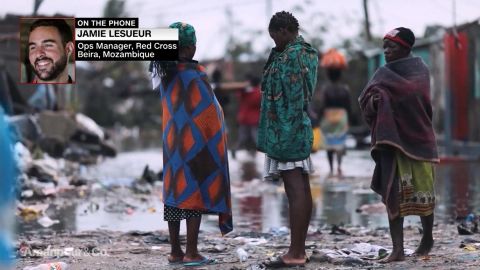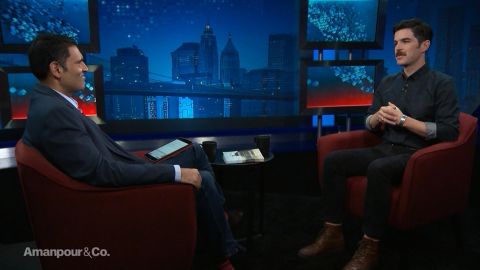Read Transcript EXPAND
CHRISTIANE AMANPOUR: Jamie Lesueur is an emergency operations manager for the Red Cross who spoke to us by phone about the unfolding disaster from the worst hit City of Beirut, that is where communications are understandably extremely unreliable, but this is his report.
JAMIE LESUEUR, OPS MANAGER, RED CROSS: It’s hard to estimate exactly how many people are in danger at this state, but we know that there is many and they’re mainly in the Buzi and Pungue areas to the west of us. The aerial assessment showed that football stadiums were full of people and that on top of houses, there were clusters of people requesting assistance from the top of their lungs. We can’t give you a number but what we can say is that there is an immediate need and the search and rescue is working tirelessly around the clock to make sure they can go out and save those people. But one of the challenges of course is the weather. The weather continues to not be favorable for us. And so, it had impacted some flights. But as I mentioned, the teams are on the ground a hundred percent of the time to make sure they’re getting people back and in safety as quick as possible. Accessibility has been a challenge from day one. We were here before the cyclone in Maputo and we were ready to go. But the moment we found a way in, roads were completely devastated for all access into beta city. This requires us to move in by helicopter. And right now, this is the only into beta cities, via air and via the seaport. So, this is been a major challenge for getting aid in. But because the airport is open, it has given us an access point for various city as for the cyclone affected population. But the challenge still remains in the flood affected area because we cannot get many cars in there and we’re relying on drops from helicopters in order to support the affected population in the flood affected areas. For me, this is the most — this is the largest emergency operation I have been on personally and it has been extensive for all of us. And we’re all working together as a humanitarian collective to address it. But it is immense and it’s (INAUDIBLE). What we want the world to know is that the Red Cross and the international community are here to support the government to Mozambique in supporting the affected community, providing immediate relief assistance, providing immediate search and rescue and helping them to regain their footing in this awful disaster. We are expecting to be here for some time to support these initiatives and have launched an emergency appeal to do that. But we are here and we are ready and we’re going to be here with the local Red Cross to support these people for the — as long as they need us. It’s hard to say how long it’ll take. But through our local organizations, through the Red Cross, for instance, the Red Cross in Mozambique, we have an entry point to support these people for many years. But we hope it won’t go for much longer than the immediate rescue phase and we start working on recovery.
About This Episode EXPAND
Jamie LeSueur, the Red Cross’ Emergency Operations Manager for Africa, describes what’s happening on the ground in Mozambique. Professor Michael Oppenheimer discusses climate science. Actors Armie Hammer & Nazanin Boniadi star in “Hotel Mumbai,” about the massacre by Pakistani terrorists at Mumbai’s Taj Mahal Palace Hotel in 2008. Francisco Cantú discusses his new book “The Line Becomes a River.”
LEARN MORE



